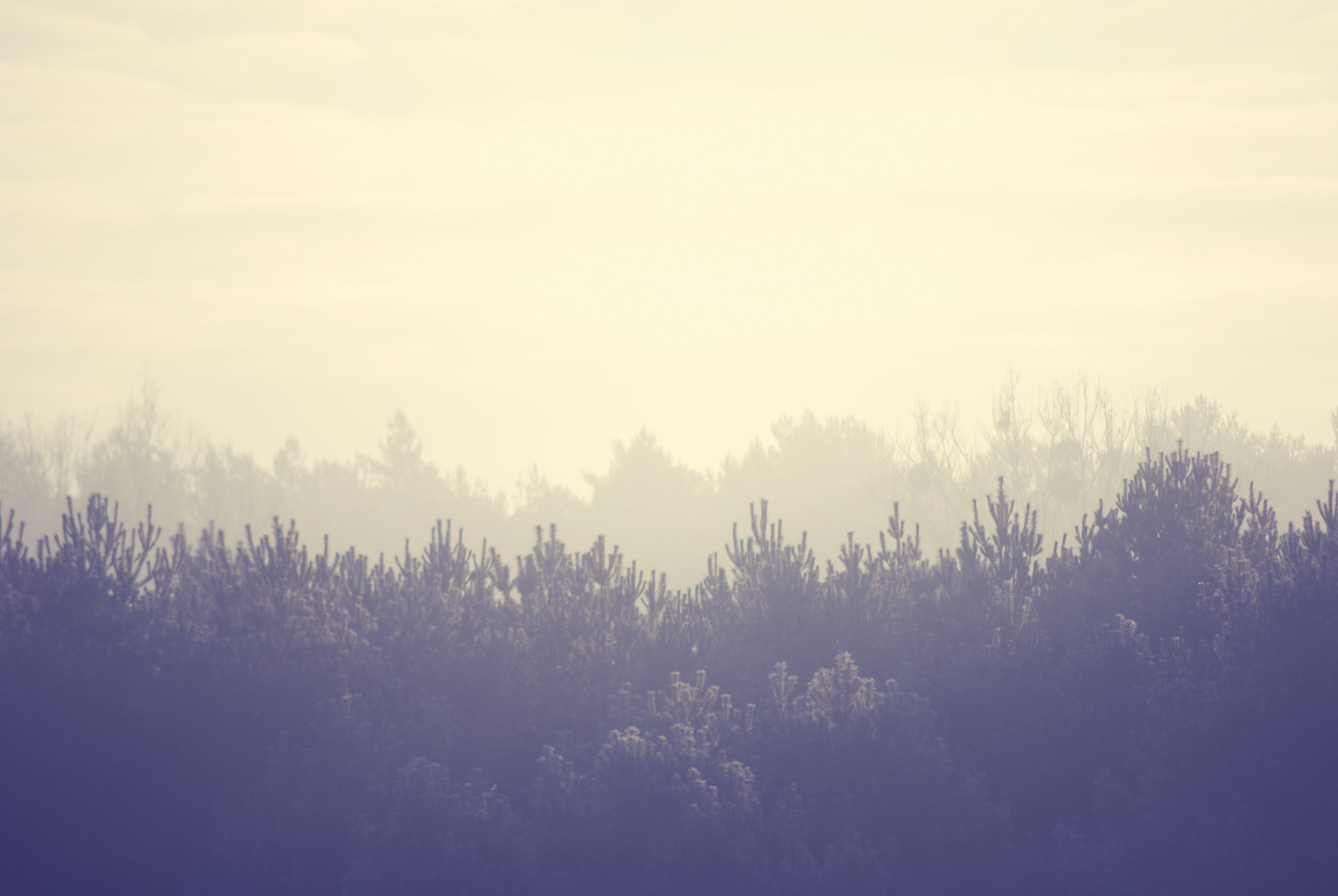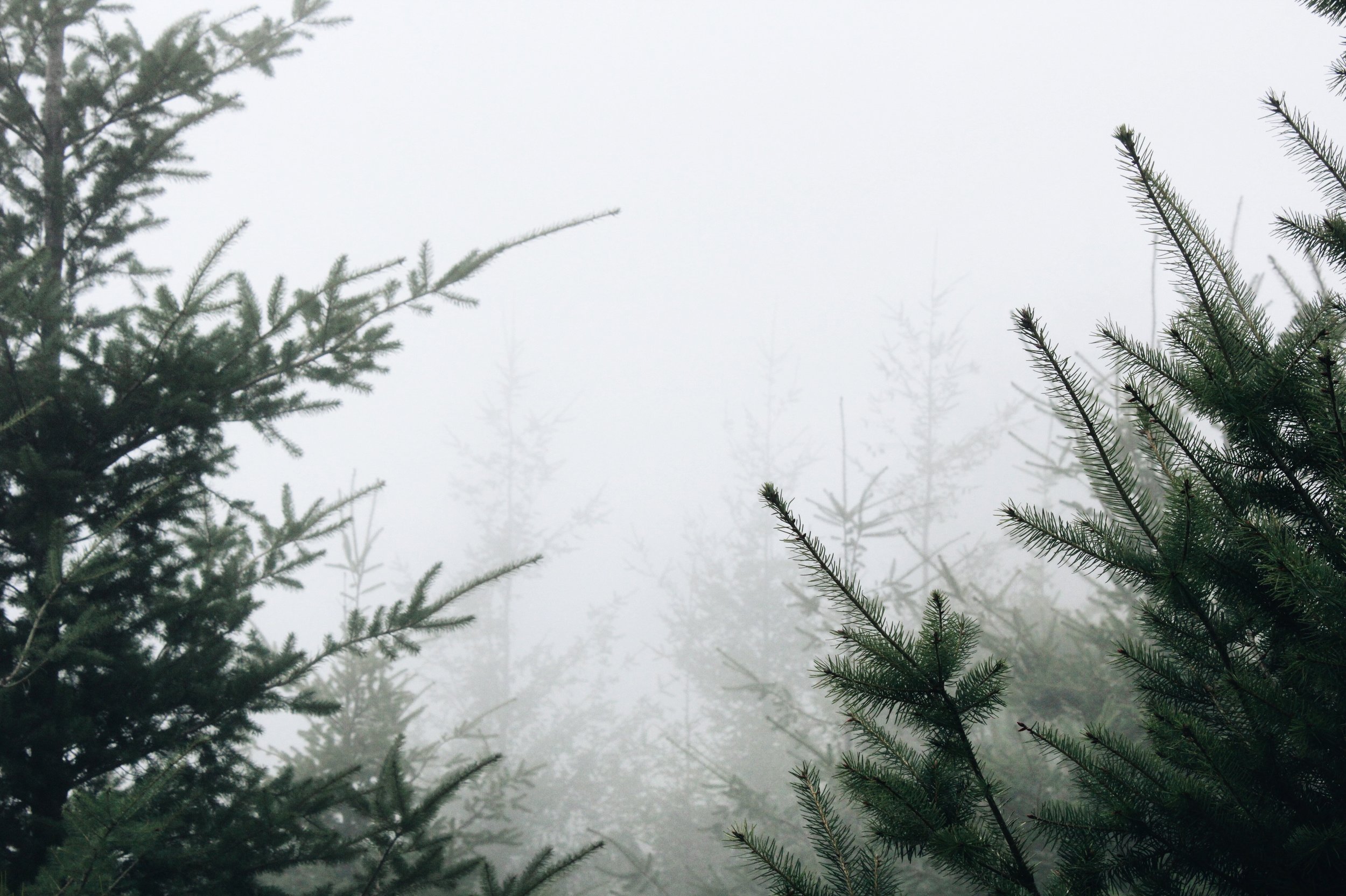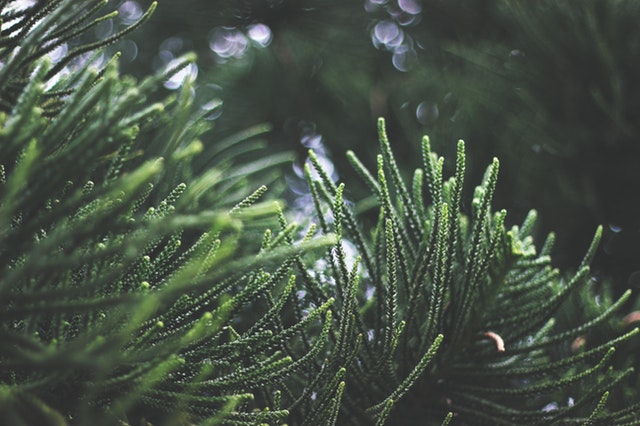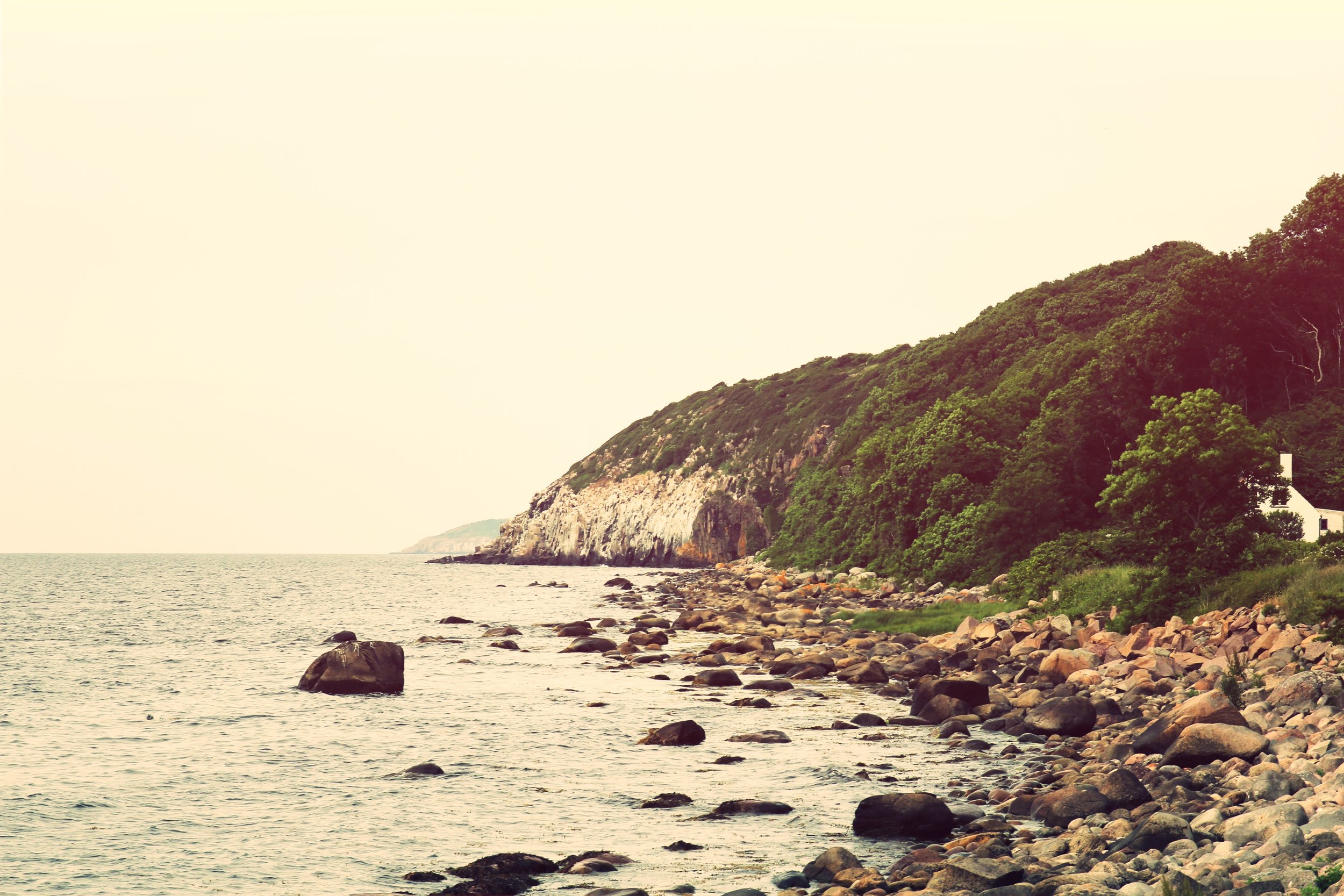Coastal Evergreens and The Lie of Exceptionalism
I’m writing to you from the Oregon coast, which, if you haven’t been here before, is stunning in its own rocky, tormented way. A lot of people prefer to enjoy the coast when it’s sunny and bright, but my favorite coastal environment is stormy and foggy - the kind of day where you feel a little nervous for your safety.
While we’ve been here, it’s been “cheery, sunny coast,” but this morning I was up early enough to see the dense fog covering the beach before it burned away. My view of the beach was framed by evergreens - those gnarly, tough trees that have grown despite being battered by gale force winds for their entire lives.
As with anytime I get quiet enough to feel deeply human and connected again, my mind started making connections between those trees and our journeys as people living in this world, in this time.
Lately I’d been caught up in a story that I know many of you have probably been caught up in before, too, which is the story that says that unless we’re the best at something, it’s not worth doing.
We exist within a culture that tells us we need to be exceptional but then treats us as if we’re all the same. We’re mass marketed to, sold products that are made in droves, and are told in millions of tiny ways to act, look, and be like everyone else.
At the same time, we’re pressured to be exceptional, to stand out, and we’re rewarded for climbing ahead of others.
It’s a difficult culture to be in, and I’d found myself wrestling with these stories in ways that were keeping me from doing the work I needed to do.
I don’t know what caused me to slip back into this have-to-be-exceptional story, but it’s usually triggered by a sense of insecurity and getting sidetracked by seeing what everyone else in my field is doing. Slowly, I start buying into the belief again and eventually become paralyzed by inaction because nothing I can think to do could ever be “good enough.”
I become anxious about needing to be exceptional and simultaneously convinced that there is, in fact, nothing exceptional about me.
Photo by elizabeth lies on Unsplash
This is an issue I hear about all the time from my clients, and while I haven’t figured out how to avoid getting to this place to begin with, I can empathize with how painful and debilitating it can be. Once you add on layers like “I can’t believe I care about being exceptional,” or “I’m so ashamed I haven’t figured this out,” it becomes one huge mess.
So, I’m on the sofa with coffee in hand, looking out at the foggy beach, and a piercing clarity comes upon me as I look at the trees outlining the sea.
I thought, “Thank God trees don’t have the complexes we humans do.”
What if all of the trees in our world were as mired in self-doubt, exceptionalism, and confusion as we are? What if, at tree puberty, they all started doubting whether or not they could or even should become trees?
I know I was born a pine, but should I consider going to school to become a douglas fir??
I hate all of these needles covering me, I need to get them removed!
I don’t think I can grow bigger than those redwoods, so I’ll just stop trying.
These are ridiculous thoughts for a tree to be having, right? Not only are they ridiculous, they’re dangerous.
Without the trees growing into the fullest, most deeply rooted, most well-nourished version of themselves, our planet would collapse. Life would cease to exist.
I would argue that the dual lies of exceptionalism and the belief that we have no inherent value are equally ridiculous and dangerous for humans as well, and we’re seeing the impacts of this mess all across our broken world.
When you believe that you have nothing to offer but should have everything to offer, you are paralyzed.
You don’t act from a place of authority, you don’t question the dominant culture around you, and you become disconnected from the people and places that show you who you are.
That’s very convenient for anyone who wants to control, sell to, or manipulate you.
As far as I can tell, trees don’t get caught up in this paralysis. They start with their entire potential inside of them, respond to their environment, and grow to produce the best fruit that they can. It’s simple and elegant, and it keeps us alive.
How can we live similarly and cut through the chaos that is keeping us stuck and subservient? I’ll use these coastal evergreens as our teachers:
We strengthen our roots.
When we buy into the belief that we need to be special or better than everyone else, I imagine us as little fireflies flitting about just trying to sparkle and be seen. There’s nothing wrong with fireflies, but they wouldn’t stand a chance in the gusts coming up off of the sea. The trees on the cliffs here have to have extremely strong roots in order to survive and not be toppled over during every storm.
I’ve said it before, and I’ll say it again: we have to prioritize the things that nourish and ground us. Michael Meade, in his amazing book, The Genius Myth, writes: “To be modern means to be surrounded by devices intended to move all of life faster while increasingly doubting that there is anywhere meaningful to go.”
Try as we might, our smart phones and social media accounts aren’t giving us the deep roots we need right now. Healthy doses of human connection, movement and rest will allow us to stay secured and stable so that we can weather the storms in our lives.
Second, we can stretch and grow.
Once a tree has established its roots, it turns its focus to growing upward toward the sun. One obvious lesson from this is that we should do things that push us to grow. But something that gets lost in “growth talk” is the importance of burning up old stories and beliefs that no longer serve us, exactly like what we’re examining in this blog post.
It’s impossible to grow without eliminating the beliefs that we took on from the dominant culture as we were growing up. Beliefs like: I’m not good at anything, I have to be good at everything, and many, many others.
Regular deconstruction and elimination can be hard to remember to do, but big astrological events like the solar eclipse we’ve just experienced in the United States are perfect reminders.
Growth requires a constant shedding of systems, beliefs, practices, and environmental hazards that get in our way. Using things like the moon cycle, quarterly check-ins, or even a daily meditation practice to keep this front of mind is all helpful.
Finally, we have to produce fruit. If a tree isn’t producing fruit - whether it’s pine cones, apples, or flowers - then something is very wrong. It’s not contributing in the way that it was meant to - in the way that’s instinctual and essential to its very being.
For us, I think of producing fruit as more than just doing things out in the world that others could point to. I think of it as acting from our own authority.
A cedar tree on the coast doesn’t confer with all of the other pine, fir, or spruce trees to ask what kind of fruit it should produce. It simply produces the best seeds that it can because it’s the expert on producing them.
If we took a sample of the professional class in the U.S. and turned them all into trees, what would we see?
Photo by Julia Caesar on Unsplash
My guess: a lot of shallow roots, stunted growth, and a concerning lack of fruit. It wouldn’t be a functional forest capable of supporting life.
I know I’m trapped in the web of exceptionalism when I feel uprooted, trapped by a busy mind, and in a constant state of questioning my authority. The way out is along a path that feels good and right to our being. It is the natural way of things, it just gets over-complicated and made messy by our minds.
We need to become a forest that is lush, diverse, and capable of supporting life for generations to come. It’s not really a choice anymore. As the real forests are dying, we need to get past this desire to be exceptional and past the lie that tells us we have nothing to offer so that we can get to the work of saving ourselves and our planet.
I don’t know what kind of tree you are, but I know you have a role to play in making this planet and all of us on it healthy again. If it resonates with you, ditch the complex life plans and keep things simple and powerful:
Deepen your roots.
Stretch toward the sun and burn up what’s not nourishing you.
Produce fruit from a place of authority.




